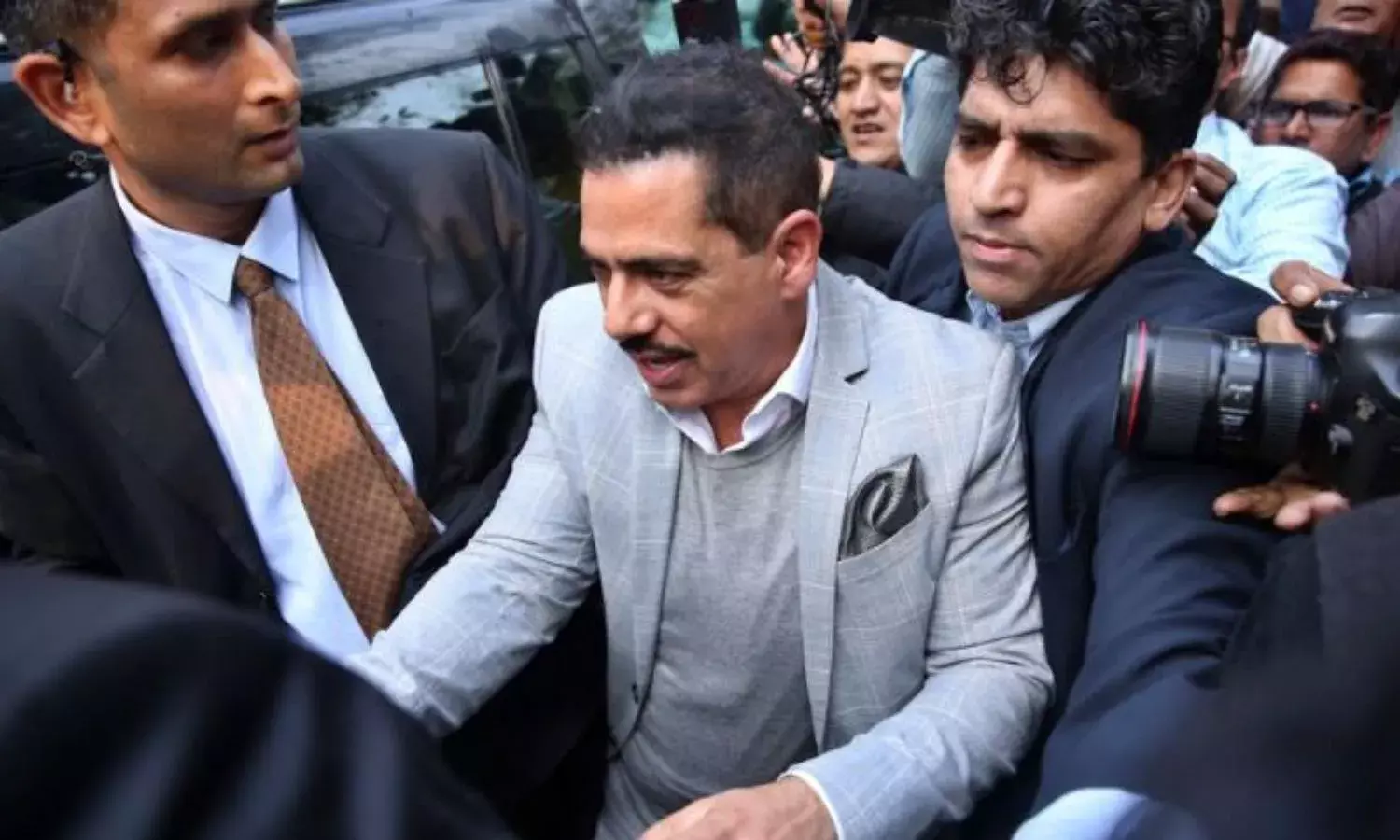Robert Vadra Investigation: Stop Politicising Please!
Congress TV spokespersons hail the 'invincible charisma' of the family
NEW DELHI: On February 6, Robert Vadra was summoned by the Enforcement Directorate to be questioned on his ‘disproportionate income’, ‘kickbacks from the arms deal’, the ‘possession of property worth £1.9 million in Britain’ and so on.
Vadra was reportedly questioned for about four hours with as many as 80 questions about his contacts, his property, the kickbacks, and questionable documents.
The media was abuzz with animated debates on the timing, motive, and strategy of handling these high-profile charges of corruption.
The spectacle was in keeping with the high-decibel wrangling in Indian politics as the spokespersons of the BJP, the Congress, of their allies, and political analysts sparred with each other. As an independent political analyst I was on a TV channel myself for over three hours, debating the chief spokesperson of the BJP and those of other parties.
The Congress charge of vendetta politics is threefold. They question the timing of the investigation, launched on the heels of Congress general secretary and Vadra’s partner Priyanka Gandhi’s formal entry into politics. They argue that the BJP is rattled by her crowd-pulling charisma which will dent the BJP’s popularity and votes, etc.
The Congress also says that Vadra has been cleared by various agencies and there is no substance in the charges being framed by the ED.
Finally, they argue that since the BJP cannot fight the ‘invincible charisma’ of the Gandhi family, they are trying to get to them through Vadra, described as a ‘private citizen’.
The BJP’s counter to the Congress’s allegations is that Vadra is steeped in corruption, and has done lots of dubious deals, so it is legitimate for the agencies to go after him; they are simply doing their job. The BJP spokesperson had to hold a press conference to air these views.
Now, as a dispassionate, non-party political analyst I would like to bring up two cardinal principles of politics, especially democratic politics which is governed largely by ethics and norms.
First, the major institutions of democracy should not be party-politicised. Of late we have seen an alarming increase in this trend, and both the Congress and BJP regimes are guilty of it.
To take an example unprecedented in Indian political history, we saw the tussle between the Chief Justice of India and the four senior most judges of the Supreme Court, when the latter went to the press to express their grievances, and their concern that ‘democracy is in peril’.
We saw the two senior most officers of the Central Bureau of Investigation fighting a turf war in public, with the political executive involved. Last week in West Bengal we witnessed the unsavoury fight between the state police and the CBI, discrediting the federal character of the Constitution and the prime minister’s embrace of ‘cooperative federalism’.
The second cardinal principle is not to obfuscate serious issues, of corruption, crime, communalism, casteism and so on, that erode governance and our composite culture.
In this case of corruption, for the Congress party to give Vadra a clean chit when there is enough prima facie evidence is politically incorrect, more so given their argument that he is a ‘private citizen’. It amounts to condoning corruption. They should let the agencies do their job and let the courts decide whether he is guilty.
At the same time, for the BJP to shout from the rooftops that Vadra is guilty and should be prosecuted at once, shows their over-indulgence in matters of law and governance.
The other worrying point is that the investigative and law enforcement agencies are targeting only those aligned with the non-BJP platform. Not a single person from the Sangh or BJP camp followers is being investigated. This obviously raises doubts about the impartiality of the agencies conducting the investigations.
Those interested in the long term, in a healthy and viable democracy of equals, must remain alert to politicians or public representatives bending institutions to their advantage, for immediate political-electoral gains. Or to opposition leaders running down institutions whose actions may hurt.
The last point to note is the level and quality of the political debate and discourse taking place. Just as the country is sought to be polarised, the intellectual discourse also reflects horizontal political loyalties, which should not be the case. The voice of balance and objectivity is sought to be smothered: one is boxed into being either “for” or “against” an issue.
The grey area is being gobbled up by over enthusiastic anchors who are eager to prove their party-political loyalty. This grey area represents the voice of reason and sanity; balance or synthesis.
Consequently, we are losing sight of major issues that define our Constitution, our values and principles. The issue at stake in the case of Robert Vadra, or for that matter others accused from political families, is that of corruption and wrongdoing, which must be addressed for the sake of fairness, justice and the public good.
We cannot afford to lose sight of such important issues, in the din and dust of party political feuds.





